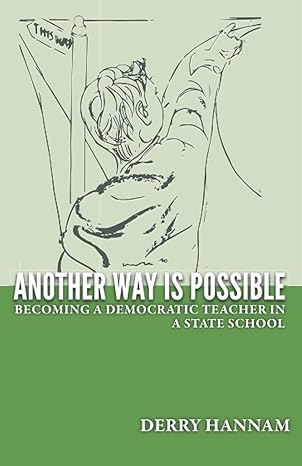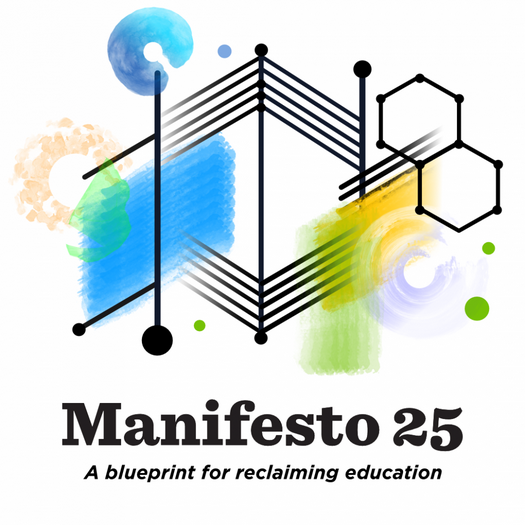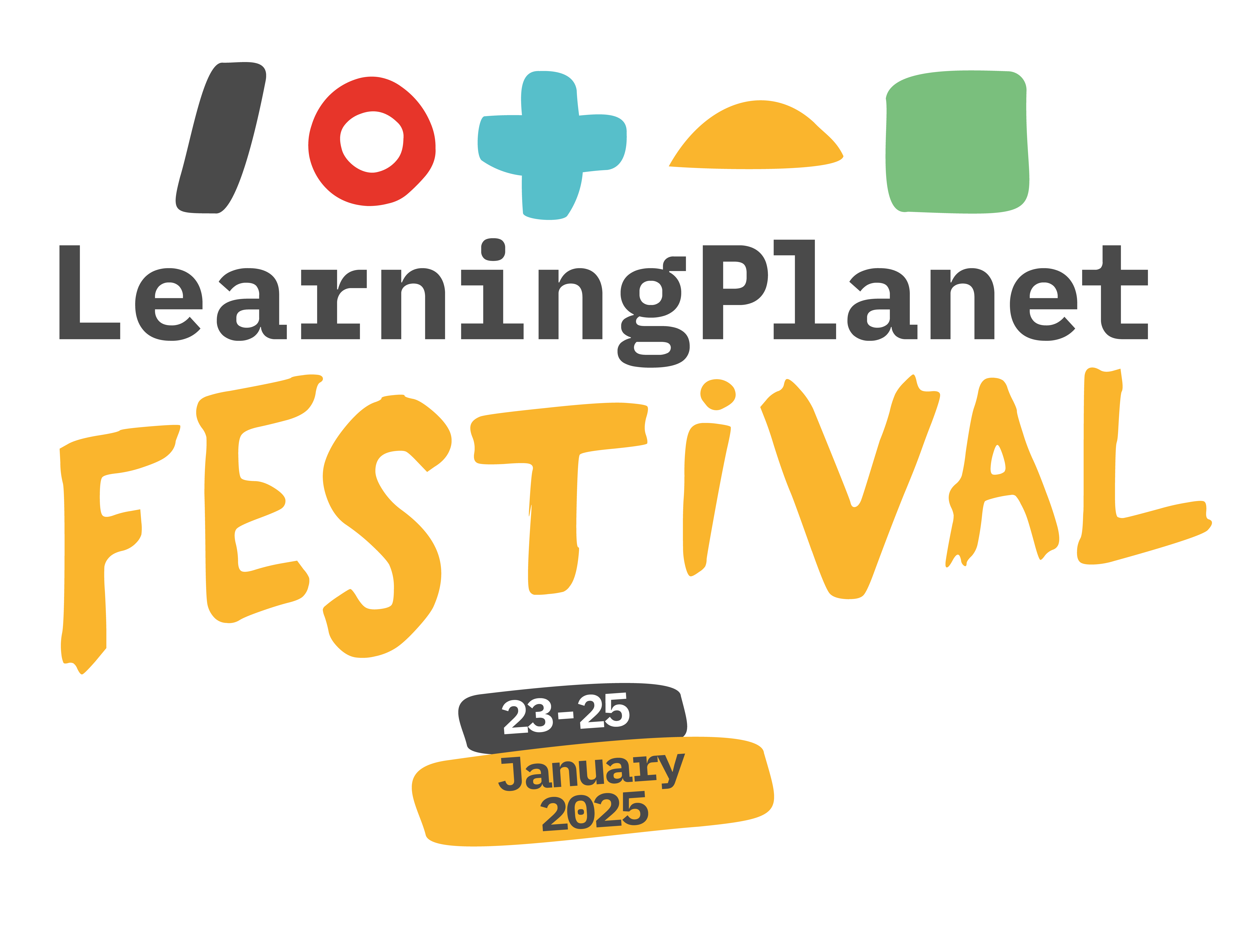Namaste EUDEC friends from Europe and beyond!
Here is the promised Report from IDEC 2018:
how it all unwrapped in my very fragmentary and subjective outlook 😉
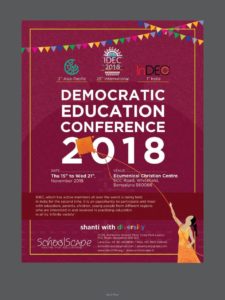
It was simultaneously the 3rd A.P.DEC (ey-pi-dec) conference (= the equivalent of EUDEC for the Asia-Pacific region), and the first, newly born InDEC :
A RESPECTFUL, RELAXED AND LIVELY ATMOSPHERE”
At 1000 meters elevation, Bengalore region is renowned for its mild climate, which made temperatures generally pleasant for everyone.
Welcoming is warm, smiling and caring.
The event is characterized by a huge presence of the youth, which gives a boost of energy and liveliness.
The guiding theme or motto is : shanti (peace) in diversity. There is indeed a colorful gently mixed crowd, including Pakistani Muslims and even Buddhist monks.
Overall organisation is relatively smooth, with a well-devoted team. Lead organization coordinator Amukta seems to have succeeded in impulsing good team dynamics with a never fading smile.
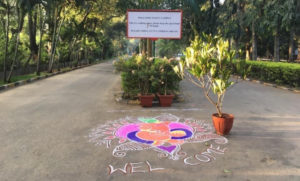
Israël had a huge influence as always in the person of Yaacov Hecht.
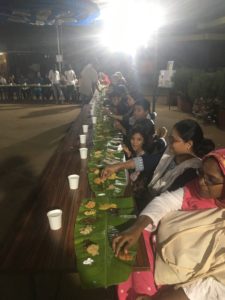
THE DYNAMICS IN ASIA-PACIFIC & INDIA
Asia-Pacific is very dynamic in the field of modern education, with more than 200 democratic schools in Japan alone, in a movement valued by the government (Japan naturally and charismatically took the moderation role in major conferences during this IDEC). Taiwan and Korea (which have reportedly among the freest schools in the world) also occupy a prominent place.
Relevant examples of this diversity can be found in the Multiversity Alliance (http://www.multiversities.net/) for example, or Marudam Farm School in Tiruwannamalaï (http://www.marudamfarmschool.org/), not to mention the various experiments in Auroville – among so many vibrant examples of Indian dynamism, to reinvent learning in the 21st century.
Interestingly, the Indian state has an official Children’s Parliament : we met the “Prime Minister”, adviser to all the main ministers of the state. The structure of this Children’s Parliament imitates the pyramidal structure of representative democracies, but its internal functioning is sociocratic.
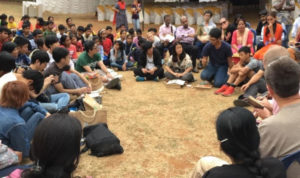
AND THE NEXT IDEC MEETINGS? (2019, 2020, 2021)
The Ukrainian team, which will organize the IDEC / EUDEC 2019, seems to have overcome its main divisions and reached an arrangement. During the conference, I could see the Stork School team and the Kiev team dance together, play, sing and hug. (It is true that apparently only the most moderate elements of the teams attended this conference.)
If you have not followed the Ukrainian series, all you need to know is that it is question of attribution of the organizing responsibility : the province and the capital disputing legitimacy, inside and outside the country. A solution has been found thanks to a moderator recognized by both parties (viva the moderation circles!;-).
THE BOTTOM LINE & a personal outlook.
An undoubtedly agreeable, joyful and well-rolling event, which elicited deservingly good feedback. Setting was nice and timely. There was a pleasant balance between talking, and hands-on experiences. Great atmosphere, and so many lovely personalities! ❤️
Again, no independent journalist was present to give a global exposure to our actions to the outer world. Could it be that we are caught in a routine or dreading to do our « coming out »?
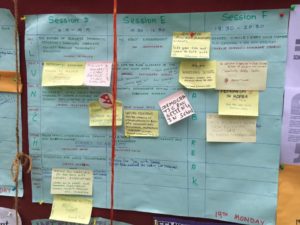
Finally, Africa and Arabia are still not on the map?? I made a suggestion that Egypt could possibly hold an international conference in the future, supporting Nariman Mustafa in Cairo (vote without candidate ?)
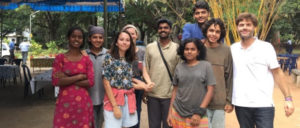 https://schoolwithoutfrontiers.org/
https://schoolwithoutfrontiers.org/
& with the kind rearrangement, inspiration and support of Pierre-André

